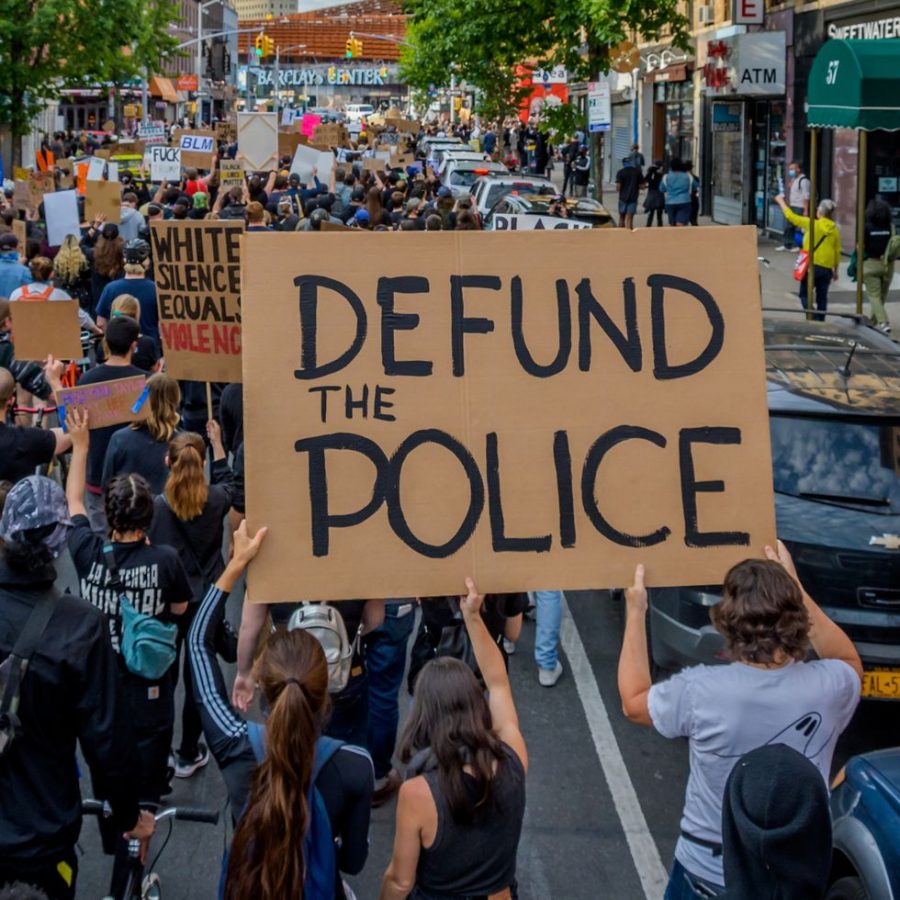Why the Push to Defund the Police?
Minneapolis police officers arrested George Floyd, a 46 year old Black man on May 25, 2020. After getting pinned down and kneeled on, Floyd told the officers he was suffocating and repeatedly said the phrase, “I can’t breathe.”
Despite Floyd’s objections, Derek Chauvin- the officer who knelt on his neck- persisted to apply pressure for seven minutes and 46 seconds. Floyd was pronounced dead later that day, and Hennepin County Medical Examiner declared his death as a homicide the following month. The next day, the four officers involved in the murder were fired, and protests to arrest them all began in Minneapolis after the video became viral on social media. In the days that ensued, protests began in other major cities across the country including Memphis, Tennessee and Portland, Oregon.
As protests continued, the Black Lives Matter movement slowly made its way into national headlines, as did the slogan “defund the police”, which became common during these protests.
Based on a report compiled by populardemocracy.org, the United States spends more than $100 billion on policing alone. The report states that major cities all over the U.S. tend to give a large fraction of their budget to fund police. In the fiscal year of 2017, New York City beat the record for having the highest budget for their city’s police department at 4.89 billion dollars. Major cities in the U.S. are funding police with over 33.3% of their general fund, including Houston, Texas at $850.4 million, Chicago, Illinois at $1.46 billion, and Minneapolis, Minnesota at $163.2 million.
Portland isn’t alone in spending a lot on police either, and 31% of their tax dollars go to the Portland Police Bureau based on their 2019-2020 fiscal year. This is just about how much they spend on Portland Parks & Recreation and Portland Fire & Rescue combined. If the money spent on policing is instead relocated to other areas such as affordable housing, mental health and counseling, or treatment in drug abuse, those who need it would be benefitting from receiving the help they need.
Police would also benefit from money being relocated from their departments, since they’re already being asked to handle a lot more than one job can handle. For example, according to the National Coalition for Domestic Abuse, people in immediate danger are advised to call 9-1-1 rather than dial a domestic abuse hotline.
In this situation, a cop would hypothetically come to the location where the abuse is taking place. On top of enforcing the law and preventing crime, police officers are now expected to help victims of domestic abuse. Add this to other roles police officers are expected to fill in, such as dealing with substance abuse or mental illness, and it’s clear that police officers already have too much responsibility to handle, and in some cases, that is a bad thing.
In October of 2015, a Black female student was arrested in Spring Valley High School (a public high school located in South Carolina) after a classroom police officer-Ben Fields- flipped her and her desk over. The event preceding this brutal interaction involved the teacher complaining that the student was being disobedient, and although the student initially resisted arrest, she was then forcefully grabbed by the neck and then thrown to the other side of the classroom.
The sheriff from Fields’ police department then responded to the incident by saying, “If we have a child that’s not following the rules, deputies are getting called in to handle that. And that’s not really our role in the school. And I think sometimes the teachers and administrators should be handling things like this,” showing that the U.S. at times has an over reliance with police officers, and their roles in everyday life.
As a response to the outcry from ongoing protests, the mayor of New York City, Bill de Blasio, stated mere days after the killing of George Floyd that, “Policing matters for sure, but the investments in our youth are foundational. We will be moving funding from the NYPD to youth initiatives and social services.”
De Blasio also made certain to the public that the shift of money away from the New York Police Department would not be at the expense of them or their safety. Similarly, Los Angeles mayor Eric Garcetti also stated that he wanted to ensure changes in the LAPD, and in order to do that, it needed to be reformed. By creating the Community Safety Partnership within the LAPD, he ensured that he’ll create, “Equity and justice and fairness for every Angeleno.”

Quality Control Editor Jared Arenas is a junior at Centennial High School, and alongside being in charge of quality control for The Talon, he is also...






